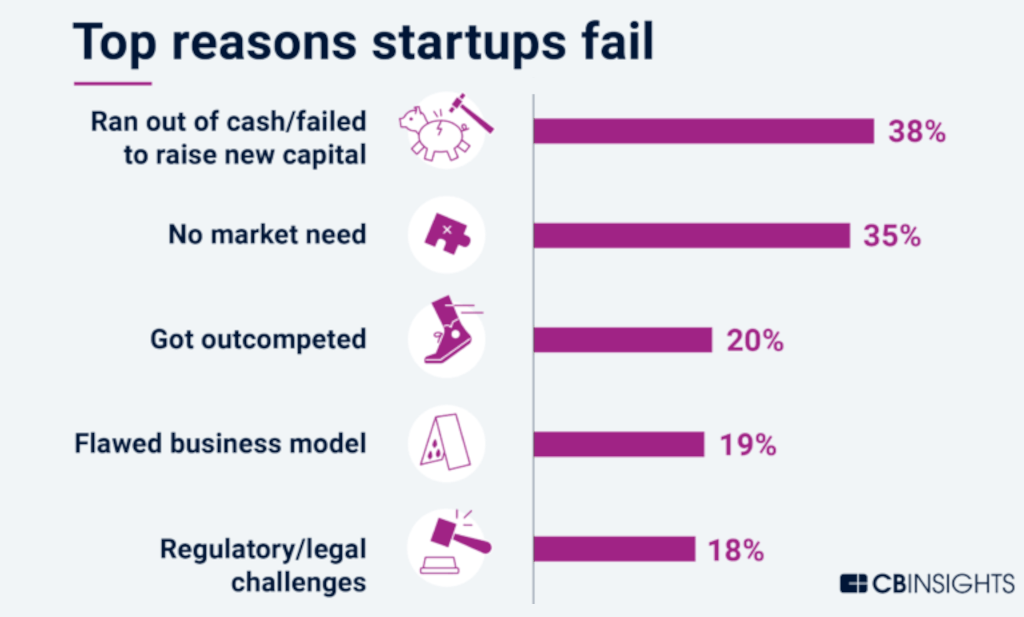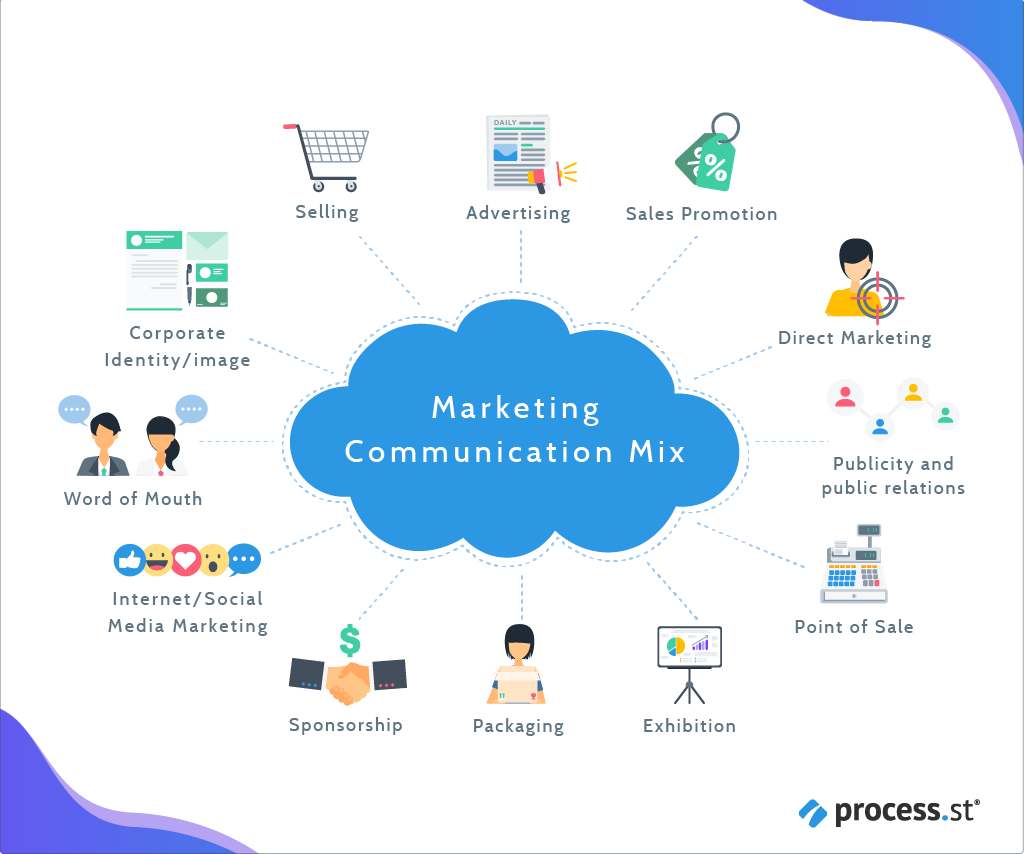
Burkhard Berger is the founder of Novum™. You can follow him on his journey from 0 to 100,000 monthly visitors on novumhq.com. His articles include some of the best growth hacking strategies and digital scaling tactics that he has learned from his own successes and failures.
The tech startup scene is one of the most popular trends that is happening in today’s time, with almost 63,700 startups being active in the US alone in 2021. That trend is only expected to grow as many more entrepreneurs try to get an awesome piece of the pie in the world of tech.
Getting into the startup scene, however, is far from pretty. With almost little or no starting money to kick things off, it can be pretty hard to climb up the ranks to be successful.
The startup world is tough, but the ones that push through and succeed are about to get into an entirely new world of business that can possibly propel them into the following generations forward in the future with their own unique market niche to cater to and support their growth all throughout the journey to becoming full-fledged tech companies.
Now with that said and done, this Process Street post will look over the reasons why tech startups fail – and how you can succeed:
Let’s dive in!
Why startups fail
Statistics also support the image of how hard it is to make a startup become self-sufficient as 9 out of 10 startup businesses are ultimately doomed to fail with each year gradually increasing failure rates, as shown by this graph here:

There are a number of things a tech startup needs to consider when it launches – new technologies, automation, improved production methods, finding the right niche, etc. – but these elements alone aren’t enough to ensure a significant profit.
For a startup to survive the grueling process of getting established, there are two key factors that make all the difference: growth and innovation. These factors are challenging to push through, and startups often make the mistake of focusing on easier wins in the beginning. Not supporting their own growth or failing to innovate fast enough to capture their market are basically a death knell for the aspiring startup. It may manage to limp along for a few more years, but ultimately, it’s not going to be one of the success stories.
That said, there are a number of reasons that cause a startup to fail. The top 5 causes are listed in the image below:

The top two reasons – lack of funds and/or market need – have consistently remained at the top of the list since 2018 (thought alternating positions from time to time). If there’s no market need for your product, or you’re not able to raise the funds to generate that need (or aren’t able to raise funds because there’s no need), your company will likely not go very far.
This is the reality that tech startups face: Experimental and innovative tech is risky. Sometimes, nobody is interested in your innovation. Worse yet, they don’t think it’s worth putting their money on.
If you’re set on becoming one of the big tech companies, you’re going to need a lot of motivation and a lot of confidence.
So let’s get right into some actionable strategies that you can use to make your startup as successful as possible.
Getting started with your startup strategy
Your startup strategy is going to measure how far you are going to reach with your initial success and how you are going to move in the direction that you want with the resources that you have. One of the crucial reasons why strategies are essential when it comes to creating a successful startup is that it provides a solid direction of where you want to go, and it also acts as a guide that you can use and change along the journey.
So when it comes to getting started with your tech startup strategy, consider some of these tips below that might help you along in formulating the right direction that you want to go to.
Tech startup tip 1: Acquire necessary talent
The talent you acquire is going to define what your startup is going to be, whether or not you will be able to catch on with that much-needed innovation and improvements, or you are going to remain stagnant. Often, you don’t need geniuses in your company, just the people who know what they are doing that can help you with other vital aspects of maintaining a tech startup.
If you need a website and you have no idea of making one, then consider hiring web designers to get things done along with maintaining all the technical aspects of having one.

Once you have the talent that you need, then it’s important to get them working as soon as possible, and it’s best that you do that through proper onboarding, establishing SOP’s, virtual meeting etiquette guides, and all that fancy stuff.
The faster that your talent can start properly working, the less time you waste, and the more time everyone spends being productive on the things that can make your tech startup survive.
Tech startup tip 2: Don’t waste time reinventing the wheel
It’s true that tech startups need to innovate in order to survive. However, you don’t need to innovate everything in your company. You just need to be better with something that directly affects your sales and profits. The rest you can just follow. If there is a company out there that is doing great with utilizing cloud storage for their business, and you think that you need that as well, then why not follow them?
If you are in need of team management software, then why bother trying to make your own? Innovate on the things that matter for your business and on the items that directly influence the success of your tech startup in the market. This not only lessens the workload that you need to be doing but also reminds you of the direction that you need to be focusing on.
Taking lessons from others that have had success with their strategies is a great way to catch up with your competitors and at the same time, you will save a lot of time, money, and worries since you don’t have to experience the failures and hardships of building something new from the ground-up. So, in a nutshell, follow the success of your competitors and innovate your own products and services that matter.
Tech startup tip 3: Establish your online presence
Marketing is a crucial step for any business and startup that is looking to get their hands on clients and just to overall spread their brand name. It’s a given already that if you want the world to know who you are then the easiest way to spread your brand is through digital marketing.
Luckily, there are plenty of ways to go about spreading your brand name on the internet. Establishing your presence on the internet is pretty easy but getting people to search for you, remember you, and be interested in you is on another level altogether.
Social media accounts are great ways to spread your brand name. Every demographic that you want to target is most active in social media, so it really is a no-brainer. Involving your brand name in social media trends can also give you a better stand with your market audience.

This sort of marketing is about the long game; don’t expect to go viral overnight. The diagram above offers an idea of what the process looks like and the three main things you need to do:
- Attract: Get their attention. Let them know you’re doing something they should be interested in.
- Engage: Don’t jump straight into sales mode; talk to them like a person.
- Delight: Offer a great customer experience so they walk away happy – and more likely to come back.
Another way to grow your online presence is through email marketing, and it’s a much more professional way of targeting clients and it is also one of the staples of grabbing the attention of people that you believe would be potential leads to your business.
According to one research study, 81% of small and medium companies use email marketing as their primary source of customer acquisition, so with that fact, it’s best that you also follow along with being highly involved in this online platform if you want to grow your online presence as fast as possible.
There are also plenty of email marketing strategies that you can use to your advantage such as onboarding emails, promotional marketing, cart abandonment email, newsletters, and many more. These strategies can be a big help in providing you with the much-needed clients that you need for your startup while also expanding your online presence and brand awareness in the email world.
Tech startup tip 4: Get customers!
Tech startups highly rely on customers to get things going for them. Technically speaking, a majority of businesses also rely on their customers to stay alive, and that’s what you want to focus on as soon as possible with your tech startup. It’s only a matter of time before your business starts to dry up the capital that you initially have, and more often than not, tech startups are money sponges in terms of costs.
Some tech startups focus too much on improving their products and are stuck in limbo with incurring costs ramping up each time. Innovation needs growth, and you can’t grow without any clients to fund your tech startup.

To get clients is first to market yourself. As mentioned before, your online platform will be a great source for potential clients. You can go along well with cold-calling and relying on predictive dialing for dishing out proposals to prospects and leads to complement your online presence as well.
Expanding on all fronts with your marketing campaigns and calculating which strategies’ ROIs are worth the hassle can help your tech startup stay afloat until your tech startup’s foundations are stable and growing.
Tech startup tip 5: Check the numbers
Accounting is one of the most critical aspects of ensuring that everything is going smoothly and nothing out of the ordinary is happening. Checking the books and numbers are also a great way of keeping track of the progress that you are making with your sales and even your customers.
If you’re a tech startup that relies on handling and manufacturing high-grade tech equipment, then you best get suited with an inventory management tracking system that can help you track and automate your inventory stock accounting all throughout the process of it being delivered to your warehouse to being shipped to your customers.
It’s a lot easier to depend on existing specialized tracking software than having to do all the bookkeeping yourself with spreadsheets. After all, tech is expensive stuff, so it’s best to make sure that everything is well-kept into account.
You can also even add on other platforms as well such as HubSpot CRM suite, so that you can effectively track sales, customer contacts, marketing calendars, and generally have a better platform to deal with clients as a whole.
Within the library of pre-made templates, Process Street has an account health scorecard workflow that can get you tracking those important metrics as quickly as it takes to add the workflow to your Process Street account. Remember, too, that you can customize it as much as you want; the template just gives you the foundation. Check it out:
Click here to access our Account Health Scorecard Checklist Workflow for free!
Tech startup tip 6: Find your niche
Establishing your brand means competing for a spot in the market, and it often can be challenging to make your spot if there are already existing brands that are dominating the market. However, all is not lost.
One of the unique advantages of tech startups is that they are supposed to introduce innovation to the game, and it’s that innovation that will most likely earn them a spot in the market that they are joining in, sometimes even make their own niche market for themselves that they dominate on their own.
Let’s use an example for better visualization: Take this drug rehabilitation center.
They focus on one thing and one thing only, providing for those that want to change their lives for the better without having to rely on drug abuse. If you check out their website, it’s all about that, but they also have an extension for drug detox centers as well.
Now, you might ask, what’s this to do with tech startups? Well, it’s them focusing on their own specific niche, which is drug rehabilitation. While it is true that they offer different services as well, they all encompass one single main event, which is rehabilitation.
When it comes to the tech world and making your own brand in the market, it’s best for you to make your brand innovate on one single niche that you would like to dominate or at the very least compete for that has a fighting chance of getting you a sizable part of the market.
This will give you an edge on making your startup company survive on its first few legs and eventually pave your way to have a reliable source of income for the foreseeable future.
Tech startup tip 7: Pay attention to customer feedback
One of the few mistakes that often tech startups make is that they don’t really provide a great way to receive feedback from the very first customers and clients that they will have. This isn’t a great sign both innovation-wise and customer relationship development as well.
One thing to take note of is that in order to create improvements and actually make your product innovative is to make sure that along the process, you receive valuable feedback and act on it to improve your product or service further. It provides you a new and unique perspective on what the user sees on how your selling point delivers to their needs.
The same thing can be said for your customer relationship. If your very first customers aren’t able to communicate with you their very first worries about your product, then they will start thinking that you’re not really interested in what they have to say.
Not listening to feedback or not providing a path for feedback doesn’t bode well for your initial customers, and you’re going to need these customers for as long as possible not only because they are a source for your funds but also because they are your very first clients that can share the word about your brand.

This also applies to other aspects of your tech startup, such as the checkout process, website design, shipping possibilities, and many more.
You can use UI and UX research platforms to help you along with what needs to be done with your website and further improve them based on what their tools suggest, and if you mix these with the feedback you get from users, then it makes improvements on your site a lot easier.
Combine all of these, and you can ultimately make the user experience on your website, one of the critical factors in tech startups, be all the more convenient for your clients and site visitors.
Keep evolving your tech startup
Getting a startup off the ground isn’t easy, but it’s not impossible, either. With motivation, determination, and the right strategy, you can put your startup well on the way to reaching that coveted unicorn status.
Your strategy needs to remain flexible, though. You should continuously evaluate it as your company scales to ensure it still suits your goals and trajectory. At some point, you’ll likely even completely outgrow your original strategy and need to develop a new one that better fits both your company and your customers.
The great advantage startups have over larger companies is this very ability to remain flexible and pivot quickly when circumstances demand. Startups – especially tech startups – are designed to innovate on the fly, so make sure your strategy – from talent acquisition to customer relationships to production – allows you the freedom to do that.
What are your most important startup lessons? Let us know in the comments!







Leks Drakos
Leks Drakos, Ph.D. is a rogue academic with a PhD from the University of Kent (Paris and Canterbury). Research interests include HR, DEIA, contemporary culture, post-apocalyptica, and monster studies. Twitter: @leksikality [he/him]